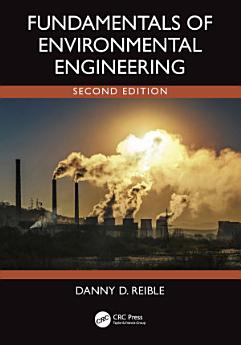Fundamentals of Environmental Engineering: Edition 2
Meer oor hierdie e-boek
Features
- Provides up-to-date information on a variety of emerging contaminants and new technologies for air and water pollution
- Discusses some of the more common aspects of environmental engineering practice and eliminates some of the least used and difficult concepts
- Explains the mathematics of mass and energy balances to guide environmental assessment in a way that doesn’t follow traditional civil engineering-oriented introductory textbooks
- Updated coverage for a one-semester course with new problems that emphasize practical field-orientated applications for environmental engineers
Undergraduate students in environmental, civil, energy, industrial, and chemical engineering will find that this textbook is an excellent overview of the fundamentals that environmental engineers should understand. Professionals involved with the environment such as regulators, researchers, academics, and practitioners concerned with the protection and management of the environment will also find this textbook to be an invaluable resource.
Meer oor die skrywer
Dr. Danny D. Reible, PhD, PE, BCEE, FNAI, NAE is Donovan Maddox Distinguished Engineering Chair and Paul Whitfield Horn Distinguished Professor at Texas Tech University. From 2004– 2013, he was the Bettie Margaret Smith Chair of Environmental Health Engineering in the Department of Civil, Architectural and Environmental Engineering at the University of Texas at Austin and also served as Director of the Center for Research in Water Resources from 2011–2013. From 1981–2004 he was a professor at Louisiana State University where he remains Professor and Director Emeritus after serving as Chevron Professor and Director of the Hazardous Substances Research Center/South and Southwest. Dr. Reible holds a PhD in chemical engineering from the California Institute of Technology and is a member of the National Academy of Engineering, a Board-Certified Environmental Engineer, a Professional Engineer (Louisiana), and a Fellow of the National Academy of Inventors, the Chinese Academy of Environmental Sciences, AAAS, and AIChE. He has more than 200 publications and has attracted more than $40 million in research funding. His research has focused on the fate, transport, and management of contaminants in the environment and the sustainable management of water resources. Some of his current research is also focused on the development and stimulation of natural hydrogen in the subsurface, which is directed toward developing a truly "green" energy source.
Much of his research has focused on contaminant processes at the sediment-water interface and in-situ management of contaminated sediments. He was elected to the National Academy of Engineering in 2005 for the "development of widely used approaches for the management of contaminated sediments." He has led the scientific evaluation of the effectiveness of in-situ capping technologies and was the first to demonstrate active or amended capping technologies that are used to significantly enhance capping performance. He has developed the CapSIM model of contaminant processes at the sediment-water interface, which is the standard tool for the design of in-situ treatment and capping. He has also been active in developing and applying passive sampling technologies to assess and manage contaminated sediments. He advises both industry and regulatory agencies on the management of contaminated sediment sites and his insight and advice have been applied to the management of a number of sites including Portland Harbor, OR; Hudson River, NY; the Penobscot River in Maine; and Fox River, WI.




